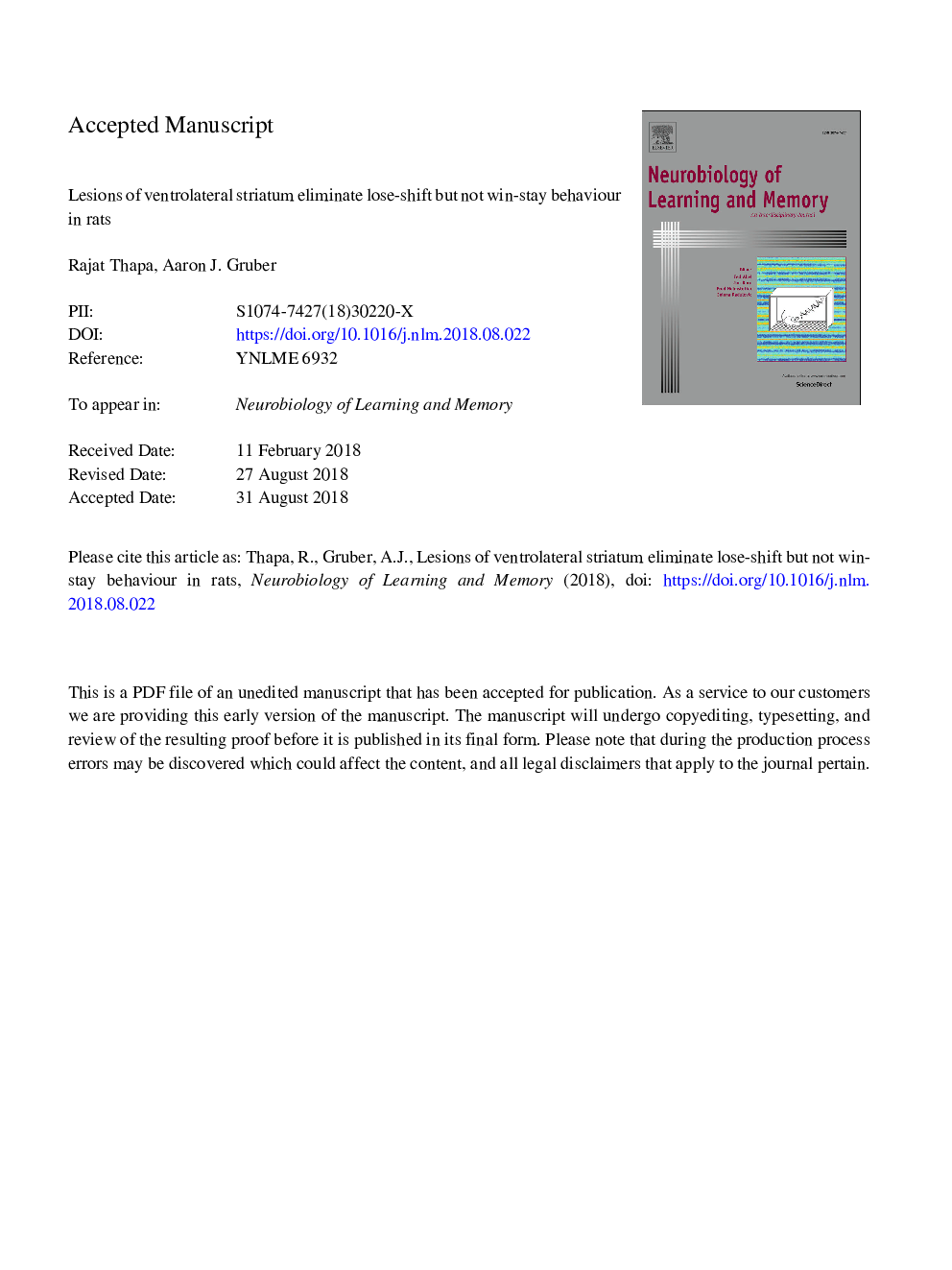| Article ID | Journal | Published Year | Pages | File Type |
|---|---|---|---|---|
| 11004575 | Neurobiology of Learning and Memory | 2018 | 25 Pages |
Abstract
Animals tend to repeat actions that are associated with reward delivery, whereas they tend to shift responses to alternate choices following reward omission. These so-called win-stay and lose-shift responses are employed by a wide range of animals in a variety of decision-making scenarios, and depend on dissociated regions of the striatum. Specifically, lose-shift responding is impaired by extensive excitotoxic lesions of the lateral striatum. Here we used focal lesions to assess whether dorsal and ventral regions of the lateral striatum contribute differently to this effect. We found that damage to ventrolateral striatum reduced lose-shift responding without impairing win-stay, motoric, or motivational aspects of behaviour in the task, whereas lesions confined to the dorsolateral striatum significantly impaired the ability of rats to complete trials of the task. Moreover, lesions to the dorsomedial striatum had no effect on either lose-shift or win-stay responding. Together, these data suggest a novel role of the ventral portion of the lateral striatum in driving lose-shift decisions.
Related Topics
Life Sciences
Neuroscience
Behavioral Neuroscience
Authors
Rajat Thapa, Aaron J. Gruber,
